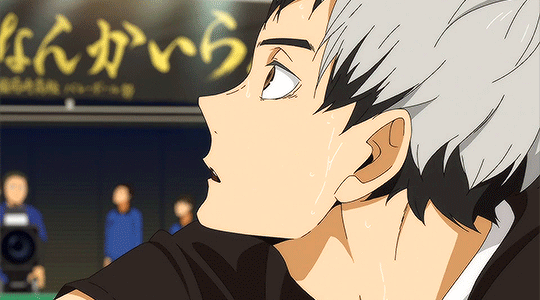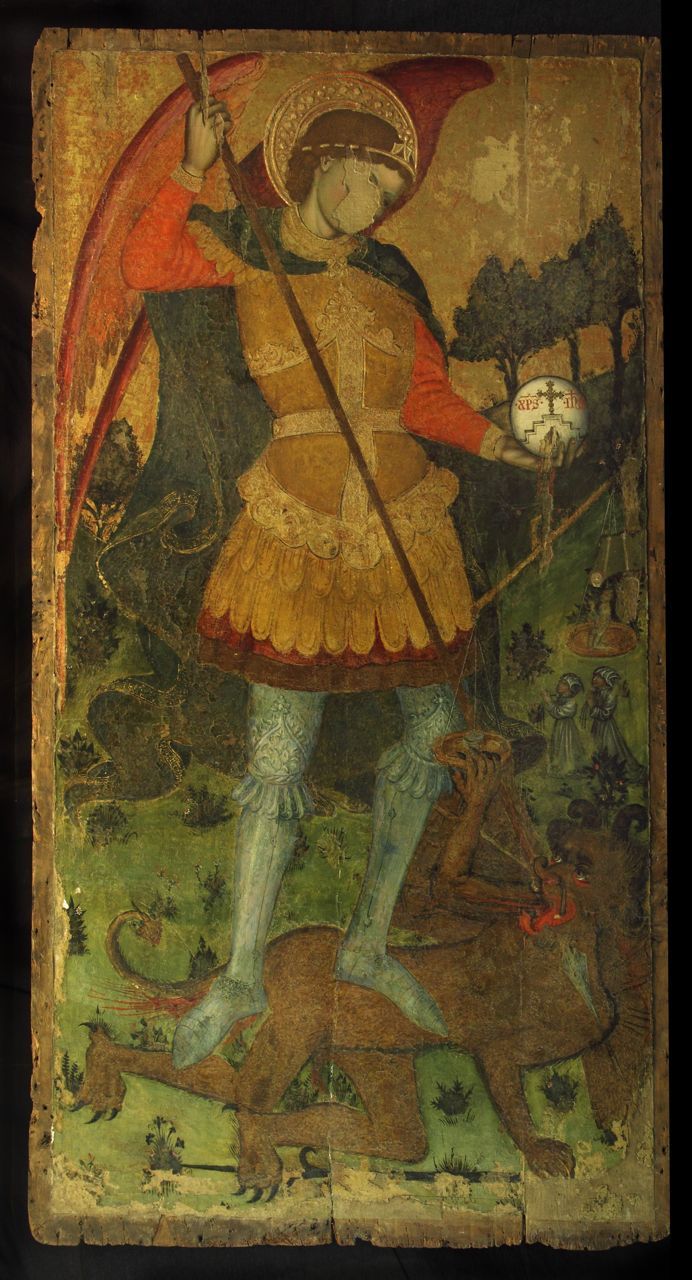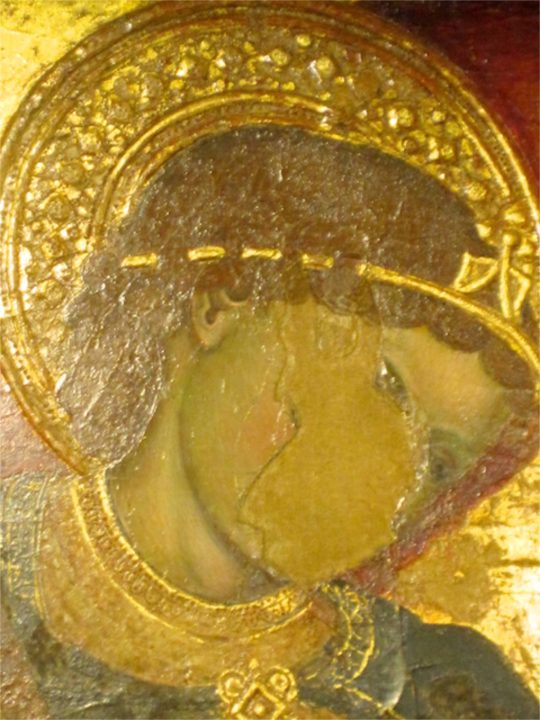#dialect
Text
964 notes
·
View notes
Text
Inarizaki's Kansai Dialect
Japanese Dialects are split into Eastern and Western, with the Standard Japanese dialect being Eastern (Kanto region) and Kansai region dialect being Western (eg. cities of Osaka and Kyoto, and of course Hyogo prefecture- where Inarizaki is from). The pitch, tone, and stressing of the sounds is different from standard Tokyo Japanese so you should be able to hear the difference in how the Inarizaki members speak even if you don't know any Japanese.
just in case yall didn't know, Suna is the only member on the team that does not use Kansai dialect as he was scouted from Aichi prefecture, so he basically just speaks in the standard dialect
Some linguistics of the dialect that may or may not be heard in the show:
"ya" ending vs the standard "da" ending.
Kore kirai ya. vs Kore kirai da. (I hate this.)
the use of the "h" sound instead of "s"
Han vs standard san (honorific suffix, not really used anymore)
Negation suffix "-hen" instead of the standard "-nai".
Taichou kanri dekitehen koto, homen na. vs Taichou kanri dekitenai koto, homen na. (Don't compliment him when he's obviously not taking care of himself.)
verb "oru" vs the standard "iru".
Dareka ga mitoru yo, Shin-chan. vs Dareka ga miteiru yo, Shin-chan.
(Someone's always watching, Shin-chan.)
verb "temau" vs standard "teshimau"
Naitemau yaro! vs Naiteshimau darou! (You're gonna make me cry!)
Negation "suru" verb becomes "sen" instead of "shinai".
Ki ni sen dee. vs Ki ni shinai yo. (Don't worry about it.)
Some words that are different in Kansai dialect:
Honto becomes Honma (really)
Sodane becomes Seyade (thats right)
Nande becomes Nandeyanen (why)
Totemo becomes Meccha (very)
ii becomes ee (good)
"aho" means stupid in Japanese, but apparently in the Kansai dialect calling someone an "aho" is actually a compliment?! (even though it has the same definition)
Overall, I could watch the Karasuno vs Inarizaki episodes a hundred times just to listen to Inarizaki's dialect and how different it sounds to the rest of the characters in the entire show.
Although Karasuno speaks in the standard dialect (which isn't very strange since Miyagi is a suburb close enough to the Kanto region), theres a few lines here and there where one of them says something using the Tohoku dialect (the dialect that would be used often in the rest of Tohoku, such as Aomori).
But that can be a separate post for another day!

(I especially like Kita's voice, thank you Nojima Kenji.)
#haikyuu#inarizaki#japanese linguistics#japaneselanguage#japanese#kansai#kita shinsuke#miya atsumu#miya osamu#miya twins#suna rintarou#aran ojiro#ojiro aran#akagi michinari#anime#anime and manga#linguistics#dialect#kenji nojima#japanese language#karasuno#tokyo
223 notes
·
View notes
Text
Have you played Dialect before? Isn’t it awesome? How does a game about language (and how it dies) bring out such intense feelings?
I think it’s the “how it dies” part.
I wrote a little thing about it over at the Everlasting, Neverending Game Night:
136 notes
·
View notes
Text
An isogloss, also called a heterogloss, is the geographic boundary of a certain linguistic feature, such as the pronunciation of a vowel, the meaning of a word, or the use of some morphological or syntactic feature. Isoglosses are a subject of study in dialectology, in which they demarcate the differences between regional dialects of a language; in areal linguistics, in which they represent the extent of borrowing of features between languages in contact with one another; and in the wave model of historical linguistics, in which they indicate the similarities and differences between members of a language family.
Wikipedia
57 notes
·
View notes
Text
🌞 Good morning to everybody except ppl who think they don’t speak with an accent 🗣️
223 notes
·
View notes
Text
hey cuties!
i noticed @headspace-hotel expressing surprise at how elementary and high school teachers are banning aave from schools under the pretense of "preventing gang activity", something that has bothered me for over a decade. personally, I have also heard teachers refer to it as "gibberish" or "incorrect" and uh ???? especially when the same students who used these words followed all of the "rules" in essays and presentations and even interactions with the teachers, only switching dialects with friends.
i was wondering, do any of you have experience with
1) an (english) dialect being erased or banned in an american school
2) an (english) dialect being erased/banned in an (english-speaking non-american) school
3) a (non-english) dialect/language being erased/banned in a (non-english-speaking) school or
4) a (non-english) dialect/language being erased/banned in an (english-speaking or american) school
this includes calques, loanwords, creoles, pidgins, etc.
ofc i do not mean curse words, which schools pretty universally ban.
some examples i have heard are aave, malayalam, and various indigenous languages from the americas.
these do not have to be your dialect or language, they can be any you have noticed. i do not speak aave, and am asian/white, but i have just noticed it in my schools until late high school.
please rb for sample size, cats and robots!!
do reblog or reply with experiences if you have em, i would like to hear, and will rb yours if you want!
this includes if you have no experience with this, why do you think you haven't?
if this happened to you, that is truly awful and i truly hope that that person or administration or government gets fired 🤭
love y'all! 💚
(side note: why would anybody ban "y'all" it is the most useful piece of nonacademic language ever istg)
#linguistics#language erasure#prescriptivism#poll#my post#dialect is a crucial part of culture#to remove it is to seek to kill the culture.#dialect#language#please rb for sample size cats and robots
72 notes
·
View notes
Text

Whenever dialects affect how an international company packages the same product, I find it fascinating. Please reblog and tag what country you're from!
#tumblr polls#polls#chocolate#candy#language#dialect#capitalism#colonialism#cacao#i notice nestle uses “bar”#cadbury uses “block”#and whittakers uses “slab” or “block”
94 notes
·
View notes
Text
Bless your heart. No - really
It seems to be understood, at least through the southern US, that "bless his/her/your heart" is a thinly veiled insult. However, when I was growing up, technically southern, my mother always used it more literally. F'rinstance, if I took her flowers she might say "Oh, bless your heart" and would 100% mean it. Based on that example, I use it the same way. I've wondered a little about that, since I realized how other people mean it.
Anyhow. I posted a scan of a letter from my great grandmother (daughter of Irish immigrants on both sides) to my grandmother dated 1944. At the end of that she refers to a Valentine's card that my very young mother had sent to her, and added "Bless her heart." Clearly meaning it sincerely. It made me wonder if the southern Bless-your-heart met up with the Irish diaspora tendency to use the term 'Bless' frequently and literally and created a little coal-mining-town pocket of folks who say it when they're truly delighted with someone or something.
Just pondering. Anyone else out there use B-y-h in a positive, loving way? Is Bless-your-heart George's Creek* an outlier that should not be counted?
'* George's Creek follows a major Appalachian coal seam and has lots of tiny, defunct mining towns.
71 notes
·
View notes
Text

La cara de los catalanoparlantes monolingües y separatistas cuando se dieron cuenta de que su lengua materna era en realidad el dialecto del occitano, sorprendentemente casi como reconstruida y reciclada. 😲🤯
#rdr2#red dead redemption 2#arthur morgan#videojuegos#video games#palabras#citas#frases#textos#notas#escrituras#escritos#pensamientos#sentimientos#jajaja#words#quotes#phrases#memes#momos#cringe#gay#dialect#language#cabeza#rockstar games#face#funny#head#nft
26 notes
·
View notes
Note
Spreek je een dialect?
Ja, altijd
Ja, soms (bijvoorbeeld alleen bij familie)
Nee, maar ik kan het wel verstaan
Nee
#ik gooi er wel soms woorden in en ik kan ons dialect ook wel verstaan meestal#nederland#belgie#nederlands#belgisch#dialect#polls#peiling#poll#belgië#vlaanderen#vlaams#taal
45 notes
·
View notes
Text
Calabrian Proverb: "simu cumbinati comu i santi 'i Rriggiu" (in Calabrian dialect)
Siamo ridotti come i santi reggini. (in Italian)
We’ve been reduced to such a state, like the saints in Reggio. (in English)
This proverb refers to the historical vandalism committed by Ottoman Turks and Barbary pirates, who defaced religious paintings and chopped the heads off of and otherwise damaged sculptures in Reggio Calabria, Italy.

At the San Paolo Museum, in Reggio Calabria, amongst the many paintings, San Michele che uccide il drago (St. Michael Killing the Dragon), a large image on a wooden panel stands out for both the beauty of the work and its history. Dating from 1470, this painting of Saint Michael the Archangel was for many years attributed to Antonello da Messina. For this reason, the piece was analyzed in great detail. Even though it was determined not to be of the hand of the renowned artist, which is of no great surprise, the physical state of the image was studied more than perhaps it otherwise would have been.

At first glance, coming across this painting in a museum, you might just think that due to its more than 500-year existence, a little paint had chipped off here and there. However, the damage to the saint’s face has actually been ascribed to historical vandalism. In the 16th century, Reggio suffered terribly from attacks by Ottoman Turks and Barbary pirates. These invaders defaced, literally, religious paintings and chopped the heads off of and otherwise damaged sculptures. Thus, Saint Michael the Archangel suffered from this collateral damage.

Today, these events might seem like ancient history. However, their memory is still very much alive in the common saying in the local dialect:
Simu cumbinati comu i santi 'i Rriggiu
Follow us on Instagram, @calabria_mediterranea
#reggio calabria#calabria#italy#italia#south italy#southern italy#proverbs#saint michael#15th century paintings#15th century#art#paintings#sacred art#15th century art#1470#15th century painting#archangel michael#mediterranean#history#langblr#italian#dialect#europe#art history#turks#ottomans#muslim#ottoman empire#museum
25 notes
·
View notes
Text
@hahaha-darn-it
here are some very short clips i found of what an audibly norwegian accent can sound like, that i think is pretty accurate, but i guess it could vary on what dialect the person speaking has because there’s a huge difference in the different dialects in norway.
but these are the ones i found that i feel are most accurate of the ones i found, and especially the last clip when he says “that’s good” is accurate!
(also, the sound he makes right before he says that’s good is the word “hæ” and it’s kinda our version of huh but used mostly when you don’t hear what someone is saying)
36 notes
·
View notes
Text
Haikyuu Miyagi Dialect
So I mentioned in my Inarizaki's Dialect post that Karasuno (and the other Miyagi schools) would actually speak in the Tohoku dialect (technically). They don't really speak in the dialect (they speak the standard dialect since they live in a suburb of Sendai, which is big enough and close enough to the Kanto region (tokyo)), but theres a few lines in which some characters do use a little bit of dialect. So here are some examples that I can think of:
disclaimer - im too lazy to properly rewatch the show so im going off memory, therefore i cant guarantee 1000000% accuracy
Sugawara, Terushima, Hinata, Oikawa, Asahi, and Iwaizumi seem to have the most noticeable Tohoku dialects from what I remember hearing??
Suga (and Terushima?) especially ends his sentences with "-yarube", "-dabe", "-be" quite often which is very miyagi of him, he definitely has the strongest dialect out of all of them.
A specific example from Asahi is him saying 俺は昨日残るって言ったべよ! (ore wa kino nokoru tte ittabeyo).
I also remember Iwaizumi saying バレーはコートに6人だべや! (bare wa koto ni roku nin dabe ya).
Hinata says 昼飯食うべ (hirumeshi kuu be) along with other tohoku-like sentences
and I think Daichi once says 一回聞いとくべ (ikkai kii toku be)
I also remember reading somewhere that "boke" (often used by Kageyama and Iwaizumi) is reminiscent of the Tohoku dialect but im honestly not too sure....?
OoOOOooOO i just remembered a specific dialectal word that Oikawa once uses towards Kageyama is おがったね (ogattane). he uses the verb おがる (ogaru) which means "to grow up" in tohoku dialect.
Ukai once uses いずそうな (izusouna) which is also part of miyagi dialect
basically, you can assume that sentences ending with "-be" in haikyuu are miyagi dialect

(this is a completely different anime but in jujutsu kaisen Itadori actually uses some tohoku dialect closer to the beginning of the story which I thought was also interesting)
#japanese linguistics#japaneselanguage#linguistics#anime#anime and manga#haikyuu#sugawara koushi#asahi azumane#sawamura daichi#hinata shoyo#kageyama tobio#iwaizumi hajime#oikawa tooru#ukai keishin#terushima yuuji#karasuno#aoba johsai#dateko#date tech#shiratorizawa#johzenji#dialect#language learning#jjk#jujutsu kaisen#yuji itadori
62 notes
·
View notes
Text
Hi Us Americans I am once more coming to you confused
My daily word game says "faff" isn't in your dictionary, so I want to know what you say instead?
In the UK, (to) faff is to spend a lot of time doing little bits and pieces of things, either to distract yourself from a bigger task or because what you're trying to achieve is tricky and possibly pointless. In a sentence:
"I wanted to get XYZ done today but I was just faffing about"
"I considered getting a waffle machine but making them yourself is a bit of a faff"
What word would you use in those sentences, if you don't use "faff"? I think procrastination is similar, but not exact. Maybe something like "busywork" but idk.
#linguistics#faff#faffing about#is this uk lingo or more specific to wales/cardiff? i have no idea#dialect
25 notes
·
View notes
Text
He's a 10 but he thinks there's only one correct way to pronounce words and it just so happens to be the way he pronounces them
169 notes
·
View notes
Text

British English Dialects
20 notes
·
View notes